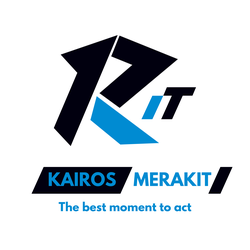Microsoft Dynamics 365 is a suite of cloud-based business applications designed to streamline processes, improve customer engagement, and provide actionable insights. It integrates functionalities such as CRM (Customer Relationship Management) and ERP (Enterprise Resource Planning), making it a versatile tool for organizations of all sizes.
What Do Microsoft Dynamics 365 Consultants Do?
Microsoft Dynamics 365 consultants are professionals who specialize in helping businesses implement, customize, and optimize Microsoft Dynamics 365. They ensure that the software aligns with an organization’s unique needs and enhances efficiency.
Key Services Microsoft Dynamics 365 Consultants Typically Offer
Implementation Services: Setting up Microsoft Dynamics 365 according to your business requirements.
Customization: Tailoring the platform’s features to meet specific operational needs.
Integration: Connecting Microsoft Dynamics 365 with other tools and systems your business uses.
Training: Educating your team on how to effectively use the platform.
Support and Maintenance: Providing ongoing technical support and updates.
Importance of Localized Expertise in Quebec City
Localized expertise ensures that Microsoft Dynamics 365 consultants understand the specific challenges and opportunities within the Quebec City market. This knowledge allows them to provide tailored solutions that address regional business nuances.
How We Ranked the Best Microsoft Dynamics 365 Consultants
Criteria Used for Evaluation:
Portfolio Quality: The range and complexity of projects completed.
Client Reviews: Testimonials and feedback from previous clients.
Industry Experience: Years of experience and expertise in various industries.
Local Market Understanding in Quebec City: Familiarity with the unique dynamics of the Quebec City area.
Methodology for Selecting Top Agencies
We evaluated agencies based on their proven track record, customer satisfaction, and ability to deliver results within budget and timeline constraints. Our selection process also included consultations and analysis of case studies.
Benefits of Hiring a Microsoft Dynamics 365 Consultant in Quebec City
How It Companies Can Help Businesses Grow
Streamlined Operations: Automating manual processes to save time and resources.
Enhanced Customer Relationships: Using CRM tools to provide better service and build loyalty.
Data-Driven Decisions: Leveraging insights from real-time data analytics.
Specific Benefits Tailored to the Quebec City Area or Market
Solutions designed to address the challenges unique to businesses in Quebec City.
Local compliance and regulatory guidance.
Enhanced networking opportunities within the Quebec City business community.
Tips for Choosing the Right Microsoft Dynamics 365 Consultant in Quebec City
Factors to Consider:
Budget: Ensure the consultant’s fees align with your financial plan.
Niche Expertise: Look for consultants with experience in your industry.
Communication Style: Clear and consistent communication is essential for project success.
Questions to Ask During Consultations:
What experience do you have with businesses similar to mine?
How do you approach customizations for Microsoft Dynamics 365?
What is your support policy after implementation?
Importance of Alignment with Your Brand’s Goals
Choosing a consultant who understands and supports your business objectives ensures that the solution implemented is both effective and sustainable in the long term.

